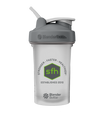Nature or nurture. Are you made up of what your mama gave you? Or are you a product of your environment? With the study of epigenetics, it is revealed that your genetic makeup can be a little of both. This opens doors when it comes to taking control of the things you’re predisposed to (those hips from Grandma), allowing you to regulate your well being and the health of your future family tree.
Humans have 25,000 genomes in their bodies which determine everything from their hair color to predispositions for certain diseases. You can thank your parents for your genes and most of them are unchangeable. The DNA from your ancestors is like an imprint left over and the grooves are what your genetic map follows as you inherit their traits. But then you have epigenomes – they won’t alter your genetic code but they can transform your health.
According to The Guardian, if DNA is like an instruction manual on how the human body is made, epigenetics are the highlighters illuminating the important parts to follow. Epigenetics is like a biological mechanism that switches your genes on and off. They can wipe the slate clean, whether with a change in lifestyle, or a round of drug treatments to right any wrongs. Likewise, a healthy map can be damaged by epigenetics if it is altered by poor life choices, stress, abuse, or trauma.
A simple way to describe the impact of epigenomes is a close look at two identical twins. Each starts out with identical traits, however, they can end up with vastly different life experiences and health situations. One twin can grow up eating clean and running every day, while the other lives on Yoo-Hoo, double cheeseburgers and smokes a pack a day. Though they are genetically identical, the way their genes expressed themselves would be very different.
When epigenomes change, and these changes can be from age, environment, or lifestyle they can have an impact. One example of epigenetic change with a damaging effect is a disease like cancer. Another is mental retardation disorders. Autoimmune diseases have also been linked to epigenetic aberrations, as well as certain psychiatric and mood disorders, ranging from schizophrenia to bipolar disorder to autism. While it doesn’t originate internally, according to The Guardian, child abuse and early trauma seem to also have an effect on DNA patterns. Studies show it can be passed down. As reported in Scientific American, a 2016 study at Mount Sinai hospital in New York discovered that children of Holocaust survivors had an increased number of stress-related disorders found within their genes.
The beauty of epigenetics is that it is malleable. While you are stuck with the genes you are born with, these switches can be reversed. Epigenetics control your genes either turning them dormant or making them active. With different combinations of switching certain ones on and off, it could be possible to weed out the bad and keep the good, thereby reversing disease.
This theory was proved by a study conducted by Duke University researchers, epigenetics has a far-reaching impact. Professors Randy Jirtle and Robert Waterland studied epigenetics in Agouti mice, which are predisposed to have cancer, diabetes, and become obese. In an attempt to reverse their progeny’s fate, the researchers fed a female mouse a healthy diet with produce that would prevent genes that cause disease from switching on. The female mouse gave birth to baby mice, which unlike their chubby, yellow parents, were thin with brown fur. As they aged, the mice did not carry the predisposition for the illnesses their parents had and they lived a longer life.
That illuminates how important nutrition and exercise are during pregnancy. If mothers change their lifestyle while expecting, it impacts the long-term health of her child. The study proves that your choices can have a direct effect on the expression of your genes and how they may develop in your offspring and generations to come.
Diet and exercise can contribute to your genes for you and your future clan. According to Scientific American, a study at the Swedish Karolinska Institute had men and women bike with only one leg for three months. Biopsies on the developed muscles showed new improved gene patterns connected with energy, insulin response, and metabolism. So on those days where you don’t feel like getting off the couch, think not only of yourself but your future spawn. Your prospective family is depending on you.


















Leave a comment
This site is protected by hCaptcha and the hCaptcha Privacy Policy and Terms of Service apply.